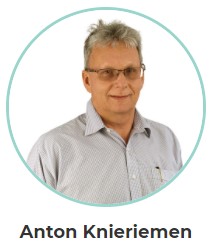Burnout is on the rise
Under-resourcing and a culmination of financial, legal, governmental and administrative pressures, means health practitioner burnout is becoming a critical issue in Australia. At a time when patients are in need of more care as the population ages, doctors are being asked to be more productive, work longer hours, and make faster, more accurate preventive care assessments. This is leading to more stress, and fewer doctors. At the same time, patients are demanding more information about their health on a device and with methods to best suit them. And this is important, as any doctor will note, since involving the patient in decision-making and arming them with appropriate information can lead to better treatment outcomes. There is also pressure to optimise health outcomes, to avoid doubling up, putting further pressure on an increasingly privatised health system, and ensuring accurate treatment is prescribed so as to avoid adverse medication interactions, and addiction issues. GPs and other specialists are crying out for a safe, secure, and up-to-date support solution to improve health outcomes.
GPs agree that they need a clinical support solution to support better patient care to assist in their daily workflows to help provide faster decisions, patient information, and to mitigate risk.
While there are new solutions available in this space, GPs either don’t know about them, or are wary of use due to previous poor efforts.
Integrated solutions mean doctors don’t have to jump into different areas of clinical software to find crucial information and formulate into remembered pathways for determining preventive care actions. This is where we find it most effective for workflow. This is also necessary to boost productivity in times of crisis.
Clinical decision support solutions are critical in today’s volatile times, when doctors are under more pressure than ever before to increase productivity, save time, and drive efficiencies.
There are clear protocols we can follow to make sure that we’ve done what we can at GP-level before a patient leaves consultation. And certainly, as far as the patient journey goes, it optimises their care to have preventive care up to date.
A software solution which improves workflow, so GPs don’t have to jump in and out different clinical software forms/areas with history, measurement, immunisation and test lists or online resources, or look something up in a manual, means more patients are seen in the same period of time, while accuracy of recommendation and implementation of preventive care are greatly improved.
Practitioners are incredibly overworked, undervalued and criticised by pretty much everybody - from patients to government departments. So it’s not a great time to be a GP.
Clinical decision support solutions can improve productivity in a number of ways. Firstly, for faster and more accurate decisioning, proven solutions drive effective decision-making and consistent outcomes across the continuum of care.
| Dr Anton Knieriemen, M.B.B.S is a General practitioner and the responsible party for the Doctors Control Panel Software which is used across Australia in hundreds of General Practices |  |